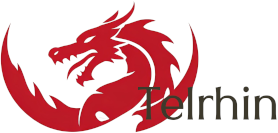Fat Dragon started with my first stab at a new system for sorcery and spellcasting and then expanded back to the main rules from there.
To be clear, these things kind of happen. And it will never be for sale, these are in-house rules.
Fat Dragon borrows elements from Story Engine, Ars Magica, Burning Wheel, George and a dose of AD&D. It uses a mix of die pools and single die rolls, 'archetypes' as a solution to class, and options to alter a scene by spending resources. The mechanics are loosely time-based (vs. scene based) but I'm doing everything I can to focus on actions as narrative instead of physics. There are experience 'paths' instead of class-based progression, and progress on a path is bought with the same building points as skills.
There's also an idea of gained experience that mixes achievements with exposure to the embers of the world's creation spark (the Ignis), making character building a more unique event requiring a dose of supernatural and larger-than-life exploits in addition to the more mundane (read: only storied people/characters in the world rise to the highest levels).
There's some more on the Rules Museum page (login required)

Comments
What's the difference between
What's the difference between experience paths and archetypes (class)?
My thinking is that
My thinking is that experience paths wouldn't be set by archetype/class directly. All characters would start on the Alpha Path (easiest to progress on) and then move to a harder paths by doing things like taking on a new archetype. Maybe certain specialty archetypes could even start at Beta Path (and if added later increase the path by 2 instead of one). The difference between the paths would be small bumps.